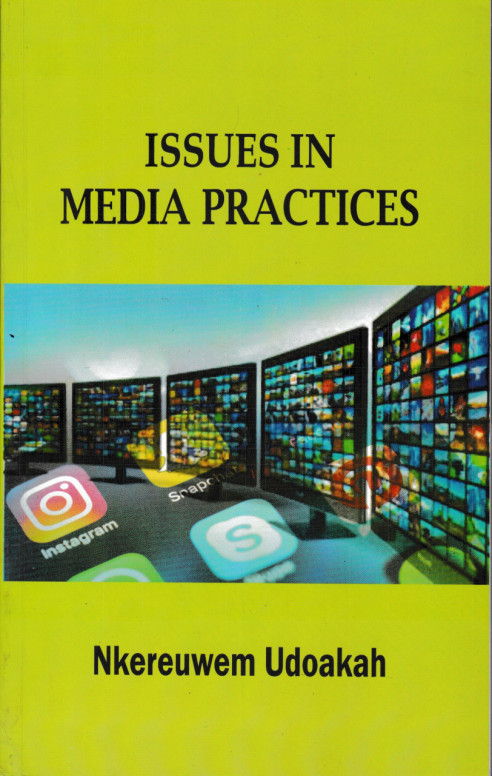Issues in Media Practices
$5.00
Table of Contents
Preface
Introduction
1 The Nigerian News Industry and the National Economy
2 Enterprising The News Industry
3 The Resources for News Production
4 News as a commodity
5 News Branding and Determinants of News Coverage
6 News Marketing and News Consumers
7 The Print Media Enterprise
8 Investigative Journalism In a Democracy
9 Ethics in Journalism
10 Communication and Community Mobilization
11 Views from the Past: Problems in Nation Building
12 Two Views on the Press
References
Index
Description
Preface
Public Issues in Mass Media Practices deals with the economics, methods and ethics of mass media news production, and the socio-political role of the mass media.
Perhaps it is necessary to bring into focus at this stage what should be understood as mass media news before going on to introduce the economics of its production. As conceived in this work, mass media news is any information about people, events, incidents, actions, places or things, decided by media managers to be of public interest and published in a bulletin known to the public in advance. The bulletin may be on radio or television stations’s programme set aside for such information, or on the pages of the print media for such information.
Such information is not only seen to be of public interest on its face value, but is considered by the media managers to be worthy, of committing scarce resources to publish.
It does not include information from other programme types in the station or information from print media features, opinions, and advertisements or commercials. In the last decade, students of communication arts and mass communication in Nigeria have had to grapple with a proper understanding of the “Economics of Mass Media News Reporting”.
Some teachers have tended to approach this undergraduate course from the perspective of how the economy should be reported. I hold a different view. That ought to be covered in spacialised reporting. I think the course title presents mass media news as a product. My approach then is to treat the course from the view point of what it takes in economic terms to produce news.
This work reflects both my insights on the subject, which I have taught since 1992, as well as an attempt to organise those insights. It is a prologue to the motivations of investor in this high-cost and high-risk industry, the absence of which would have dire consequences for society. It is prologue to the intriguing matrix of economic and social relationships between the news industry and the state, other institutions and society at large.
It gives an insight into some of the methods used by the mass media to bring information to the public, their socio-political role, and the extent to which they are prepared to go in that service to society.
The book recalls some ‘Living Essays” in the press written by the author, to underscore the types of public issues which abound in Nigerian media practices.
I am grateful to the Department of Communication Arts, University of Uyo for having assigned me the responsibility of teaching the Economics of Mass Media News Reporting, without which the insights in this book would not have been generated. I thank Mr. Etim Anim for reading through this work and sharing his views with me.
Finally, i am indebted to my wife, and my children, for making our home a home indeed for works to be done.
Nkereuwem Udoakah
January, 2021
Prof. Nkereuwem Udoakah
Nkereuwem Udoakah is a former newspaper journalist, now a Professor in Communication Arts in the University of Uyo, Nigeria. His professional experience includes reporting and editorial work with the Nigerian Chronicle and Quest Magazine, published by the Cross River State Newspaper Corporation, Calabar. He worked as a sub-editor, editorial assistant, feature writer, production editor and assistant editor on those publications. He became the officer responsible for fund-raising at the University of Cross River State (now University of Uyo) before joining the academic staff. Prof. Udoakah is a member of the Advertising Practitioners Council of Nigeria (APCON), the Nigeria Union of Journalists (NUJ) and the Nigerian Institute of Public Relations (NIPR). His research interests include journalism and media Studies, politics and the media, and development communication. He is the author of Government and the Media in Nigeria, Development Communication and Issues in Media Practices. He has many book chapters and journal articles to his credit. Prof.
Udoakah had his professional training in Ghana and Britain.
Questions and Answers
You are not logged in
